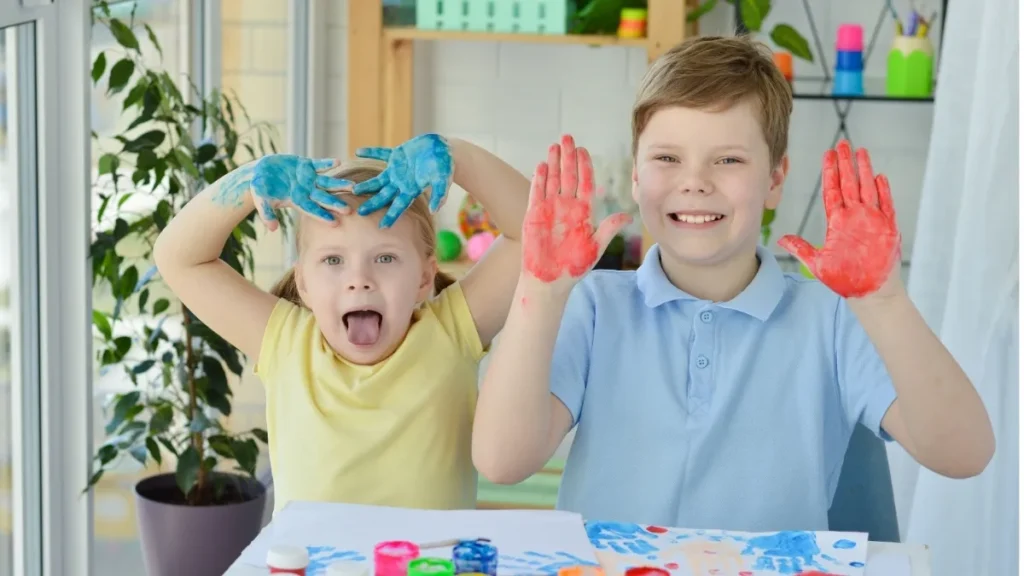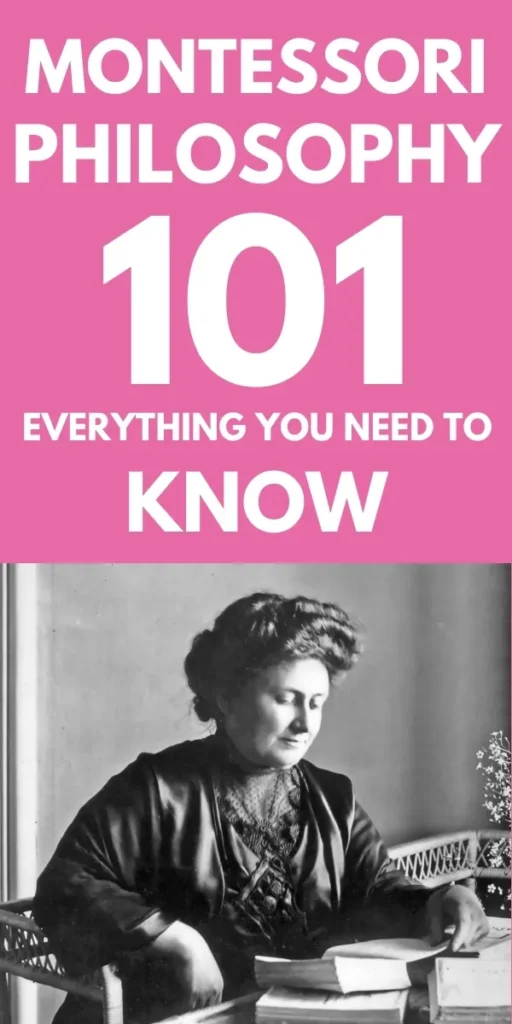In a world of educational acronyms and standardized tests, the Montessori philosophy stands out as a beacon of child-centered learning, self-discovery, and respect for individual potential.
But beneath the charming classrooms and engaging materials lies a profound philosophy, meticulously crafted by Italian physician and educator, Maria Montessori.
Let’s embark on a journey to grasp the core principles of this unique approach, unveiling the magic that unfolds within its classrooms.
What Is Montessori Philosophy?
Montessori philosophy is an educational approach rooted in the works of its founder, Dr. Maria Montessori, aimed at fostering holistic child development across various domains. Key elements of the Montessori philosophy include:
- Education Through Natural Growth: Designed to align with children’s innate tendencies towards exploration and discovery, promoting lifelong learning habits.
- Absorbent Mind: Recognizing the heightened capacity for absorbing knowledge from birth until approximately age six, referred to as ‘the absorbent mind.’
- Prepared Environment: Well-organized spaces tailored to facilitate easy navigation and engagement with appropriate materials suited to children’s sizes and capabilities.
- Freedom Within Boundaries: Encouraging personal responsibility while providing clear guidelines for behavior.
- Teacher as Facilitator: Guides assist children individually according to their distinct stages of development instead of direct instruction.
- Emphasis on Mistakes: Errors form essential components of the learning journey, encouraging critical thinking and resiliency.
- Multi-Aged Community: Multi-year groupings allow older children to assume leadership roles and inspire younger counterparts.
- Independent Work: Promoting intrinsic motivation via tasks aligned with children’s inherent desires to contribute meaningfully.
- Respect for Individuality: Valuing uniqueness among pupils and catering to varied learning approaches.
- Integrative Curriculum: Subject matter integrates seamlessly, reflecting the organic nature of knowledge acquisition.
This pedagogical framework aims to cultivate autonomous, socially conscious, academically proficient adults equipped to thrive personally and professionally.
Cornerstones of a Child-Centered Universe
1. The Absorbent Mind:
Montessori believed children possess an “absorbent mind” in their early years, readily soaking up information, skills, and values from their environment. This innate absorption drives their natural curiosity and desire to learn.

Nurturing the Sponge
- Prepared Environments: Montessori classrooms are carefully designed spaces filled with developmentally appropriate materials, inviting children to explore and learn at their own pace.
- Sensorial Experiences: Sensory activities involving sight, touch, smell, and sound refine children’s perception of the world, laying the foundation for future learning.
- Freedom within Boundaries: Children have the freedom to choose activities that capture their curiosity, within a framework of respectful guidance and gentle limits.
2. Intrinsic Motivation:
Unlike traditional reward-based systems, Montessori education emphasizes intrinsic motivation. Children learn because they are driven by their natural curiosity, love of discovery, and the joy of mastering new skills.
Sparking the Inner Flame
- Hands-On Learning: Children engage in self-directed activities with concrete materials, fostering a deeper understanding of concepts through manipulation and exploration.
- Meaningful Connection: Montessori educators connect learning to real-life experiences, making knowledge relevant and engaging for children.
- Celebrating Individual Progress: Every child’s learning journey is unique, and Montessori classrooms celebrate individual achievements, nurturing a sense of accomplishment and confidence.
3. The Prepared Teacher:

Montessori teachers are not simply instructors; they are guides and facilitators who observe, support, and challenge children without dictating their learning.
Guiding, Not Commanding
- Observational Training: Montessori teachers undergo specialized training in child observation, enabling them to tailor their guidance to each child’s individual needs and interests.
- Respectful Interactions: Children are treated with respect and autonomy, fostering a sense of self-worth and a positive classroom atmosphere.
- Scaffolding Learning: Teachers gently guide children towards new challenges, providing appropriate support without hindering their independence.
4. Holistic Development:

Montessori education recognizes that children are not just intellectual beings; they are social, emotional, and physical beings as well. The curriculum goes beyond academics, nurturing their complete development.
Cultivating the Whole Child
- Mixed-Age Groups: Children learn and interact with peers of different ages, fostering empathy, responsibility, and leadership skills.
- Practical Life Skills: Daily activities like washing dishes, pouring water, and caring for the environment build self-reliance and confidence.
- Emotional Intelligence: Montessori classrooms provide a safe space for children to express their emotions, learn conflict resolution, and develop self-awareness.
5. Lifelong Learners:

Montessori education aims to instill a love for learning that extends beyond the classroom walls. Children develop the skills and curiosity to become lifelong learners and responsible citizens.
From Seed to Forest
- Critical Thinking and Problem-Solving: Montessori activities and projects encourage children to think creatively, analyze information, and find solutions independently.
- Adaptability and Resilience: Children learn to embrace new challenges and adapt to changing environments, preparing them for the complexities of life.
- Active Citizenship: Montessori education fosters a sense of social responsibility and encourages children to contribute positively to their communities and the world.
Beyond the Label: Finding the Right Fit
While Montessori’s benefits are undeniable, it’s crucial to remember that every child is unique, and no single educational approach caters to everyone. Consider your child’s individual needs, learning style, and preferences when exploring Montessori schools.
Embracing Individuality:
- Focus on the Learning Environment: Visit Montessori schools to observe the classrooms, interaction between teachers and children, and overall atmosphere.
- Open Communication: Engage in honest conversations with educators about your child’s personality, strengths, and challenges to understand if Montessori aligns with their needs.
- Trial and Error: Consider trial programs or introductory workshops to let your child experience the Montessori approach firsthand.

Montessori Philosophy – Frequently Asked Questions
What is maria montessori philosophy of education?
Is montessori good for toddlers?
Does the montessori method work?
Also Read:
- Gentle Parenting Vs Montessori Parenting: Which is Right for You?
- What Is A Montessori Mom? (7 Steps To Become A Montessori Mom)
- Do Montessori Schools Give Homework? A Quick Answer
- Reggio Emilia Vs Montessori: Which Is Better?
- Montessori Vs Waldorf: Which Is Better?